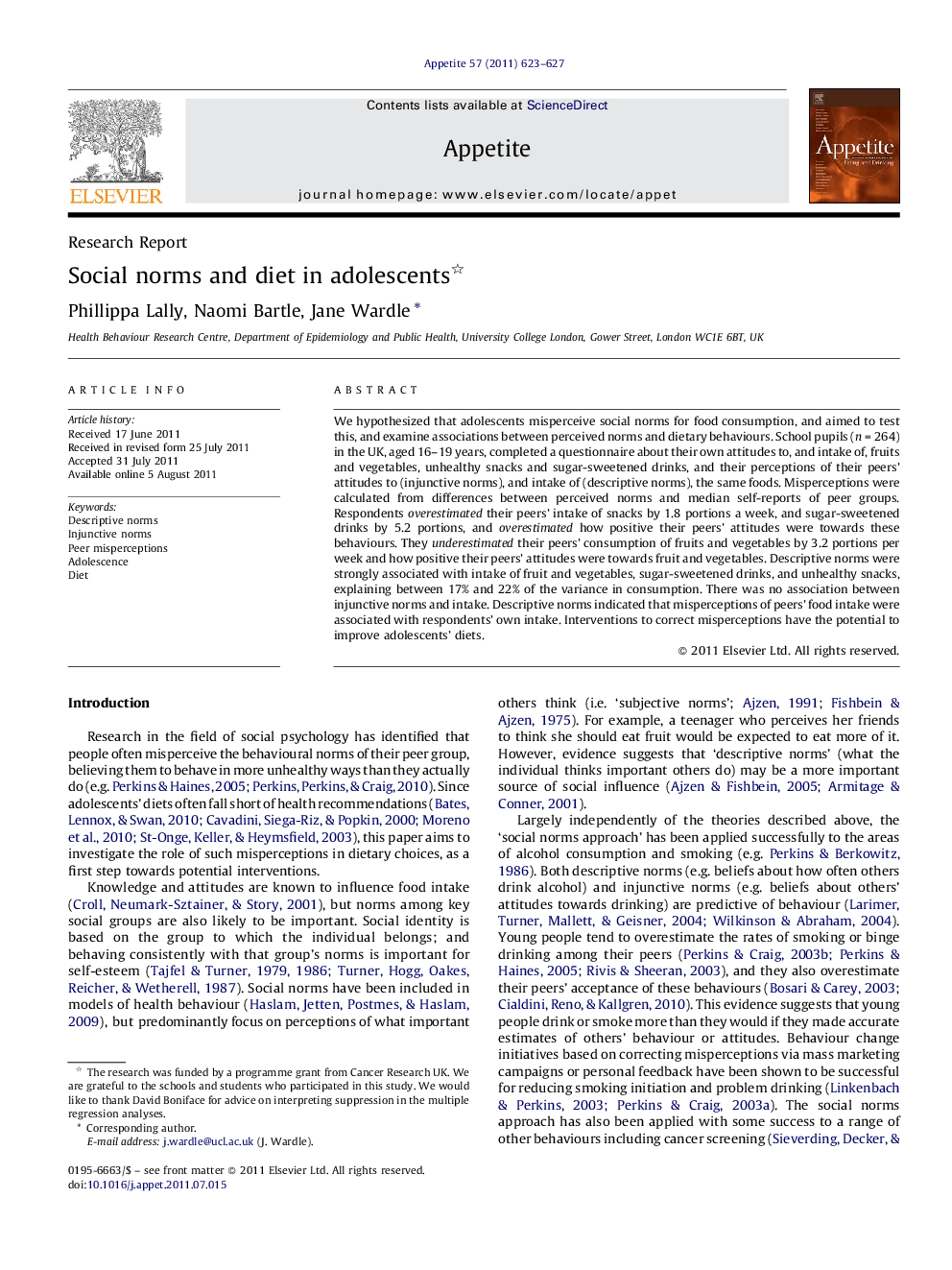| Article ID | Journal | Published Year | Pages | File Type |
|---|---|---|---|---|
| 940594 | Appetite | 2011 | 5 Pages |
We hypothesized that adolescents misperceive social norms for food consumption, and aimed to test this, and examine associations between perceived norms and dietary behaviours. School pupils (n = 264) in the UK, aged 16–19 years, completed a questionnaire about their own attitudes to, and intake of, fruits and vegetables, unhealthy snacks and sugar-sweetened drinks, and their perceptions of their peers’ attitudes to (injunctive norms), and intake of (descriptive norms), the same foods. Misperceptions were calculated from differences between perceived norms and median self-reports of peer groups. Respondents overestimated their peers’ intake of snacks by 1.8 portions a week, and sugar-sweetened drinks by 5.2 portions, and overestimated how positive their peers’ attitudes were towards these behaviours. They underestimated their peers’ consumption of fruits and vegetables by 3.2 portions per week and how positive their peers’ attitudes were towards fruit and vegetables. Descriptive norms were strongly associated with intake of fruit and vegetables, sugar-sweetened drinks, and unhealthy snacks, explaining between 17% and 22% of the variance in consumption. There was no association between injunctive norms and intake. Descriptive norms indicated that misperceptions of peers’ food intake were associated with respondents’ own intake. Interventions to correct misperceptions have the potential to improve adolescents’ diets.
► Social norms have been shown to be influential in behaviour, but rarely applied to diet. ► Adolescents misperceive their peers’ intake of healthy and unhealthy foods. ► Norm misperceptions create a permissive environment for intake of unhealthy foods. ► Norm misperceptions are also related to intake of fruit and vegetables. ► Correcting misperceptions may help to improve adolescents’ diet.
